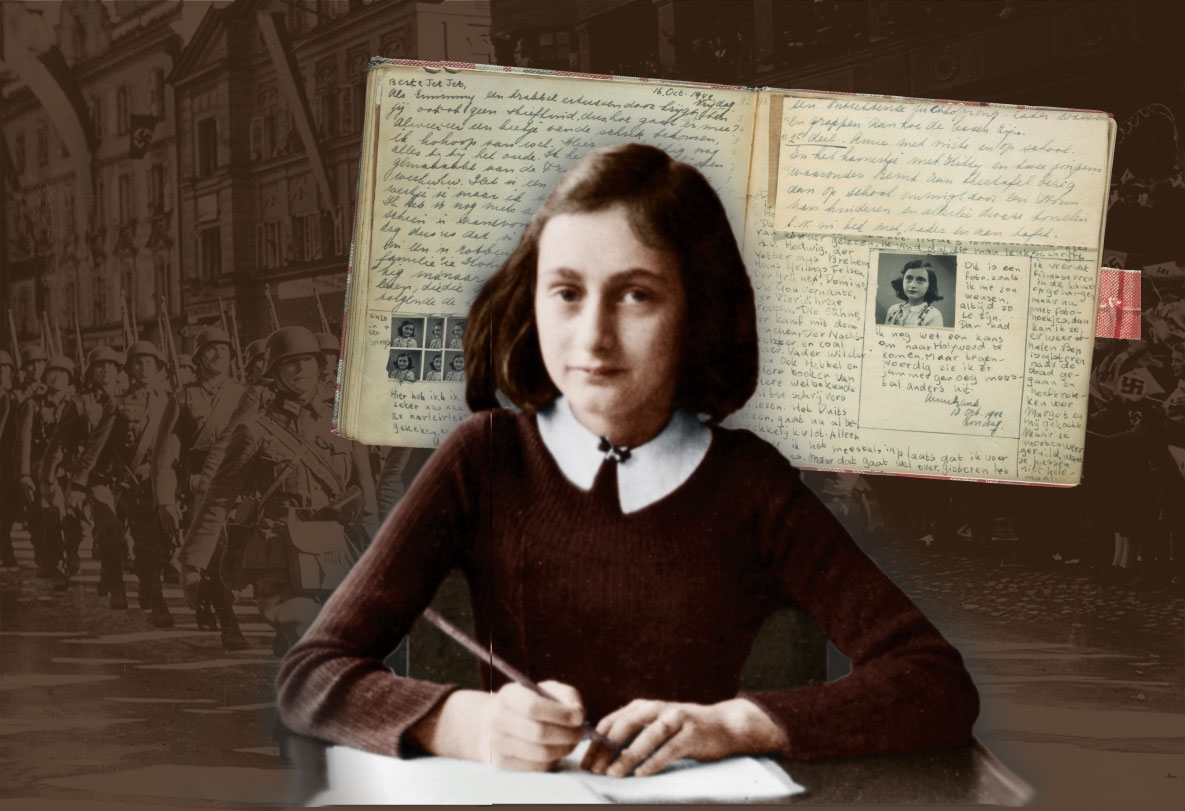
Naturally I didn’t knock, but opened the trap door myself, but still he came to meet me most obligingly, and took the pan from me. Then my back began to ache and I got cold. I thanked him, went upstairs, and searched at least ten minutes in the large barrel for the smallest potatoes. “Yes,” he replied, “knock when you come back, then I’ll open it for you.” I went through Peter’s room he took all his papers off the stairs at once and I asked whether I should close the trap door to the attic. In the afternoon I went to get some coffee and, after that, potatoes, because I wanted to pamper Margot for just that one day in the year. Peter came at half past twelve to look at the presents and stayed talking much longer than was strictly necessary-a thing he’d never have done otherwise. I made a special effort not to look at him too much, because whenever I did, he kept on looking too and then-yes, then-it gave me a lovely feeling inside, but which I mustn’t feel too often.įebruary 16-It’s Margot’s birthday. Whatever you do, don’t think I’m in love with Peter-not a bit of it!įebruary 13, 1944-I used to think that Peter was in love with Margot, but yesterday I suddenly had the feeling that it’s not so. I have made up my mind to go and sit with Peter more often and to get him talking somehow or other. I noticed his shy manner and it made me feel very gentle I couldn’t refrain from meeting those dark eyes again and again, and with my whole heart I almost beseeched him: oh, tell me, what is going on inside you, oh, can’t you look beyond this ridiculous chatter?īut the evening passed and nothing happened, except that I told him about blushing-naturally not what I have written, but just so that he would become more sure of himself as he grew older.
#ANNE FRANK THE PART WHEN THEY GET THE CAKE HOW TO#
I could see on his face that look of helplessness and uncertainty as to how to behave, and, at the same time, a trace of his sense of manhood. It gave me a queer feeling each time I looked into his deep blue eyes, and he sat there with that mysterious laugh playing round his lips. I helped him with them and we soon sat opposite each other at his little table, he on the chair, and me on the couch. Peter has a mania for crossword puzzles at the moment. I tried to think of an excuse to stay in his room and get him talking, and my chance came yesterday. Whenever I’ve been upstairs in Peter’s room during the day, it always struck me as very cosy, but because Peter is so shy and would never turn anyone out who became a nuisance, I never dared stay long, because I was afraid he might think me a bore. January 6-My longing to talk to someone became so intense that somehow or other I took it into my head to choose Peter. I asked her whether, as proof of our friendship, we should feel one another’s breasts, but she refused. I could not help being terribly inquisitive about her body, for she had always kept it hidden from me. I already had such feelings subconsciously before I came here, because I remember that once when I slept with a girl friend I had a strong desire to kiss her, and that I did. So extraordinary a personality, and so authentic a talent, speak from every page, that the reader’s first emotion after coming to the close of the unfinished diary is one of an overwhelming sadness at the destruction of this one mind, this one spirit, this one young girl-an emotion which perhaps larger and more remote statistics have sometimes failed to rouse.


And these eight Jews together, behind drawn curtains, in not too desperate physical circumstances (loyal Dutch friends kept them supplied with food), but under a mounting tension of monotony, anxiety, and all too human daily irritation, lived as one large family.įrom her journal, which she named “Kitty,” electing it the intimate friend of her adolescence, Anne concealed none of her thoughts, and we have what is certainly one of literature’s great immediate records of that stormy time of a young girl’s life. Anne relates how here also came the family of Van Daan-father, mother, and son Peter-and the dentist Dussel. Again Otto Frank acted prudently, this time fleeing with his family to a cleverly prepared hideout, the so-called “secret annex,” in the rear upper floors of his office building. The early entries of the diary tell how Anne’s father, Otto Frank, had prudently fled Germany for Holland with his wife and two little girls as early as 1933, and, having resumed his successful business, was comfortably enough settled in his Amsterdam home when the lengthening arm of the Gestapo reached there. Editorial Note: Here we conclude the diary of Anne Frank, which we began in our last month’s issue.


 0 kommentar(er)
0 kommentar(er)
